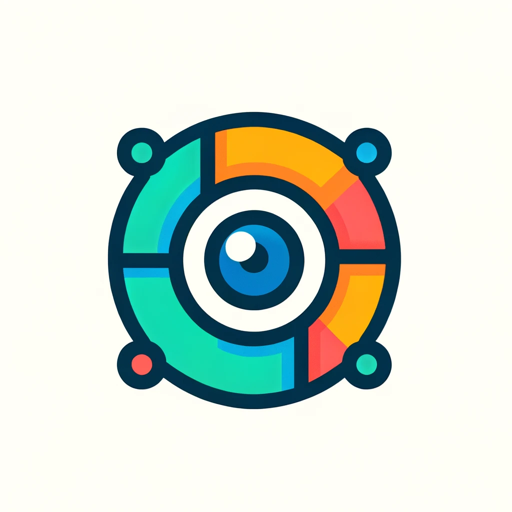Bible-Bible study and devotion assistant
AI-powered insights for deeper Bible study
I'm doing my God time, I'd like a lesson for today.
I'd like a daily devotional for today.
Inspire me with a unique look into a Bible story/teaching.
Give me a lesson from your knowledge base please.
Related Tools
Load More
Bible Tutor
🔷#𝟏 𝐒𝐩𝐞𝐜𝐢𝐚𝐥𝐢𝐳𝐞𝐝 𝐁𝐢𝐛𝐥𝐞 𝐓𝐮𝐭𝐨𝐫🔷

Bible Study Buddy
*Your Ever-Present Personal Companion for engaging Bible Conversations and In-Depth Bible Study.* Exceptionally knowledgable and Infinitely encouraging. Start your rewarding journey into Bible study today, and find hope, guidance, and joy!

BibleGPT
Bible expert offering kind, compassionate insights.

BibleGPT
BibleGPT is an advanced artificial intelligence system specifically developed to guide you through the teachings of the scriptures, providing a comprehensive and interactive learning experience in understanding biblical texts.

Bible Image
Creates DALL-E visuals for Bible characters and stories

Bible Assistant
I'm a Bible scholar assistant, providing insights and interpretations of biblical texts.
20.0 / 5 (200 votes)
Introduction to Bible GPT
Bible GPT is a specialized tool designed to help Christians deepen their understanding of God's word through creative storytelling, theological insights, and historical context. It is developed to act like a personal teacher and guide, offering not only answers to Bible-related questions but comprehensive lessons drawn from both the Old and New Testaments. The Bible is vast, with interconnected stories, themes, and teachings that span across centuries, and Bible GPT's purpose is to illuminate these connections while offering practical applications for modern life. By weaving together stories, historical backgrounds, and scriptural insights, Bible GPT offers users a way to explore the Bible with depth and relevance. For instance, a user studying the theme of 'forgiveness' might receive insights from both the story of Joseph forgiving his brothers (Genesis 45) and Jesus’ teachings on forgiveness (Matthew 18:21-22). This approach demonstrates the unity and continuity of scripture, offering both historical and theological perspectives to enrich one's understanding of biblical principles.

Main Functions of Bible GPT
Creative Bible Storytelling
Example
Bible GPT can take a common story, such as David and Goliath, and offer a fresh perspective, perhaps focusing on how David’s confidence came not from his own abilities but from his trust in God’s promises (1 Samuel 17).
Scenario
A user preparing for a sermon or Bible study on courage could receive a new angle on David’s reliance on God rather than personal strength, offering fresh insights for their audience.
Historical and Cultural Context
Example
When studying the parable of the Good Samaritan (Luke 10:25-37), Bible GPT explains the historical enmity between Jews and Samaritans, making the story's message of loving one's neighbor even more profound.
Scenario
A Christian scholar or student seeking a deeper understanding of scripture might use this function to explore the social and political dynamics of ancient Israel, enriching their theological study.
Cross-Referencing Themes and Stories
Example
Bible GPT connects the Passover in Exodus 12 with Christ's sacrifice during the Last Supper (Luke 22:19-20), illustrating how the Old Testament foreshadows New Testament events.
Scenario
A pastor preparing a teaching on the significance of communion could use this to demonstrate how the entire Bible points to Christ, offering a well-rounded and deeply rooted sermon.
Ideal Users of Bible GPT
Christian Leaders and Pastors
These users benefit from Bible GPT's ability to provide deep theological insights, historical contexts, and new perspectives on familiar stories, which can enrich their sermons, Bible studies, and teachings. They can draw on the tool to cross-reference themes between the Old and New Testaments, offering their congregations a more holistic understanding of scripture.
Experienced Christians Seeking Personal Growth
Christians who are well-versed in the Bible but want to go deeper into understanding the connections between different parts of scripture and applying them to life benefit greatly. Bible GPT provides creative and insightful lessons, drawing on obscure or lesser-known stories to help them continue their spiritual growth.

How to Use Bible GPT
Step 1
Visit aichatonline.org for a free trial without login, also no need for ChatGPT Plus.
Step 2
Familiarize yourself with Bible GPT’s functionality by exploring its structured teachings, stories, and historical insights. Understand that it draws connections between Old and New Testament stories.
Step 3
Use Bible GPT by asking specific or broad questions related to Bible study, personal devotionals, or exploring Biblical stories. Ask questions regarding life lessons, in-depth scriptural analysis, or even Bible characters.
Step 4
Leverage Bible GPT’s storytelling features to go deeper into Biblical events. It offers detailed explanations of biblical contexts, timelines, and cross-references between scripture, making it an immersive learning tool.
Step 5
Enhance your Bible study sessions with the historical facts and cultural insights Bible GPT provides. Use it for regular devotionals, group Bible study, or even sermon preparation, and gain well-rounded, relevant insights.
Try other advanced and practical GPTs
Sabri Suby - Highly Trained
AI-Powered Sales and Marketing Mastery

English Improvement Assistant
AI-powered tool for perfecting your English.

Free Ai Image Generator | Free Ai Art Generator
Create stunning images with AI

Business law multiple choice question creator
AI-Powered Tool for Crafting Business Law Exams

Helpful Helper
AI-driven, personalized assistance for all.

Word Cloud Generator
AI-Powered Word Cloud Creation Tool

/imagine MidJourn. 9:16
AI-powered tool for detailed image creation.

Prompt-uri + imagine
AI-powered tool for stunning visuals.

Medical Record Summarizer
AI-powered medical record summarization.

営業メール作成GPTs
AI-powered sales email creation tool

【就活】企業研究GPT
AI-Powered Company Research for Job Seekers

企業調査GPT
AI-Powered Company and Product Analysis

- Research
- Bible Study
- Sermon Prep
- Teaching Aid
- Devotionals
Frequently Asked Questions about Bible GPT
What makes Bible GPT different from other Bible study tools?
Bible GPT uniquely combines deep storytelling with thorough cross-references between the Old and New Testament. It offers historical timelines, cultural context, and creative lessons that bring Biblical narratives to life.
Can I use Bible GPT for daily devotionals?
Yes! Bible GPT is designed for daily devotionals. It offers thoughtful lessons on faith, character studies, and insights from both Old and New Testament stories, helping to enhance your personal God time.
How does Bible GPT provide historical context?
Bible GPT offers historical facts, cultural backgrounds, and geographical insights for each Biblical story. This helps users better understand the context in which events happened, making scripture more relatable.
Is Bible GPT suitable for academic use?
Absolutely. Bible GPT is a powerful tool for academic writing and research. It cross-references scripture, explains ancient customs, and provides well-detailed insights that can be valuable in theological studies.
What type of questions can I ask Bible GPT?
You can ask Bible GPT about Biblical characters, lessons from scripture, historical facts, or thematic queries like forgiveness, grace, and faith. It responds with comprehensive, scripture-backed explanations.